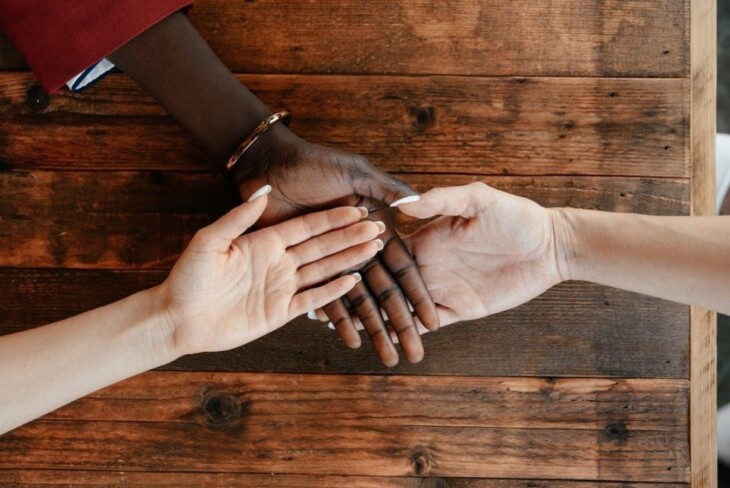Experiencing the loss of a loved one can be the biggest challenge in our lifetime. However, there are many ways to facilitate the grieving process.
Contents
5 Stages of Grief: Coping with the Loss of a Loved One in a Healthy Way
We all know that our time on Earth is limited and death is an innate part of life. Nevertheless, coping with a loss of a loved one is undoubtedly one of the most complex and painful challenges we come across in our lifetime.
Such an experience not only takes a toll on our physical and mental health. Most importantly, it changes everything forever.
How can we go on with our lives? Is it possible to cope with such loss? If yes, what is the way to do so? How can online therapy help us?
The grieving process differs from one person to another. There is also no “correct” timeline or manner of mourning. Its intensity and dynamic depending on a series of factors, such as the relationships with the deceased or the circumstances of death.
In these difficult moments, we do our best to heal, yet often we develop unhealthy coping mechanisms. Understanding the nature of the grieving process can help us navigate it better. No one lives on the earth for a long long time. Every life comes with a limited time, over that time he/she should leave us. But in some incidents, we can’t take it easy when we lose our most loved person who is more important than our heart feel. Get more valuable words for getting back to your normal life.
5 Stages of Grief by Elisabeth Kübler-Ross

People experiencing loss do not go from one stage to another in a linear manner. It is normal to move back and forth between different states that last for hours, days, or even months.
Denial
What comes with the death of a loved one is a profound state of shock and denial. It acts as a defense mechanism that helps us survive through those heart-wrenching times.
Experiencing heart palpitations, insomnia, and loss of appetite are common. You may also feel overwhelmed and emotionally numb.
Getting through each day is extremely difficult in this first stage. Nevertheless, avoiding the reality of loss and all the emotions connected to it is impossible for too long.
Anger
Coming to terms with your emotions and letting yourself feel them is essential in the grieving process. Give yourself permission to be angry and frustrated.
It is common to direct these feelings at yourself, others or higher powers. You may find that anger acts as an anchor, providing a sense of structure to the painful experience of loss.

Bargaining
In this stage, the pain of the loss seems unbearable, and the yearning to go back in time becomes overpowering. We lose ourselves in the labyrinth of “what if’s,” trying to revive the deceased or bargain with fate.
The overarching emotions that arise here are guilt and shame. We blame ourselves for being alive and not preventing the death of a loved one.
Depression
Finally, we focus on the present moment, only to realize the burdensome reality of life without a loved one. Difficult and uncomfortable feelings of immense emptiness, soul-crushing sorrow and depression are universal in this stage.
Rather than suppressing or ignoring them, acknowledging and embracing these painful emotions fosters the healing process. Acknowledge the fact that being depressed is an appropriate response to the death of a loved one.

Acceptance
In this stage, we come to terms with “the new normal.” We slowly learn to navigate life, step by step. Acceptance here does not necessarily mean that everything is fine now. We understand that living a life as if nothing happened is no longer possible.
We grasp the fact that our lives have changed forever, and we try to reorganize our identity accordingly. With time, the pain subdues and makes space for joy to re-emerge.
How to Deal with Grief?
Here’s a list of helpful ways to cope with the loss of a loved one.

Healthy Routine:
Losing a loved one affects the body and the mind tremendously. Symptoms like insomnia, fatigue, bodily pains, severe headaches, and excessive crying are typical in this situation.
Maintaining a healthy routine can offer a sense of stability and balance through these demanding moments.
Try to:
- nourish your body with nutritious meals
- exercise systematically to physically release unsettling emotions
- go to bed around the same time and get enough sleep to replenish your valuable resources

Soothe Emotional Pain:
Grief usually means experiencing various emotions of different depths, intensities, and durations. We can endure them simultaneously or alternate between them within a day, a week, or a month.
Liberate yourself from any expectations or judgments regarding your emotional functioning. Instead, give yourself compassion, time, and understanding.
Engage in mindful activities like meditating or journaling that foster the expression of uncomfortable emotions. Find words to describe them, explore their nature.
Test out deep breathing practices in moments of distress. They’re standard self-soothing techniques that calm us and release the tension.

Spend Time with Your Inner Circle:
While isolation and withdrawal from the social sphere are frequent and valid needs in the grieving process, reaching out to your support system can also be beneficial.
Talking with your inner circle about the deceased can be a cathartic experience in integrating loss and accepting the new reality. Share your fondest memories of the departed, listen to their favorite music, and feel the healing power of mourning together.

Seek Professional Support:
Dealing with grief on your own can become an overwhelming and heart-wrenching process. Receiving help from a professional trained in grief counseling or grief therapy can facilitate healing.
These interventions aim to equip clients with healthy strategies of handling unsettling feelings while separating emotionally from the deceased and re-embarking on life’s journey.
Grief counseling on Calmerry offers a deep understanding of our unique thoughts and feelings, making us feel less alone in the struggle.

Final Thoughts
There is no way to prevent the grief. There are, however, many ways to facilitate the mourning process. Finding meaning and joy in the world without our loved ones is a harrowing yet unavoidable journey. Do not hesitate to look for therapeutic help on your healing path.
“The reality is that you will grieve forever.
You will not “get over” the loss of a loved one; you will learn to live with it.
You will heal, and you will rebuild yourself around the loss you have suffered.
You will be whole again, but you will never be the same.
Nor should you be the same nor would you want to.” — Elisabeth Kübler-Ross
